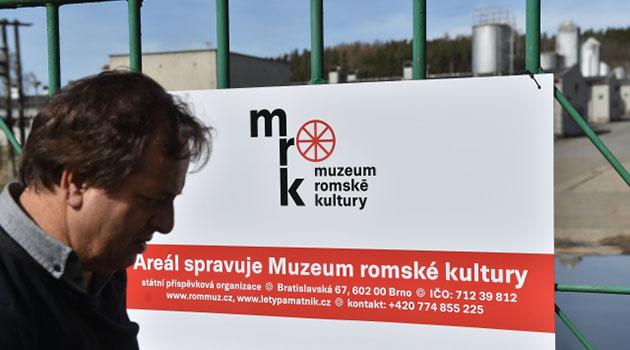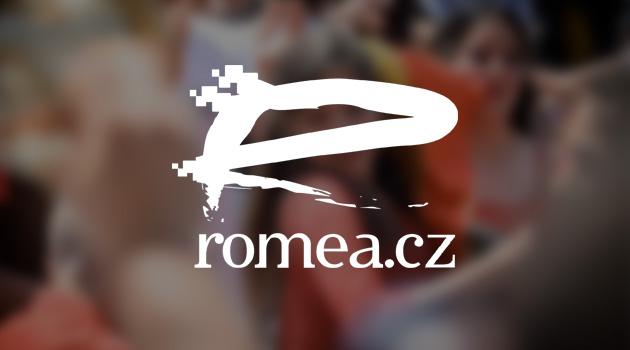Czech Museum of Romani Culture still waiting for funds for demolition of pig farm on genocide site

Despite the fact that the last pigs were removed from the industrial farm at Lety u Písku in mid-March, the facility is in the same state as it was when the Museum of Romani Culture first took it over. While the previous owners, the AGPI firm, have already been paid, the Museum is now incurring a deficit through its current administration of the entire facility because the Government has not yet approved the transfer of the promised financing from the budget reserves for the reclamation of the site of the former concentration camp.
Without that money, the Museum cannot announce a selection procedure for the archaeological research necessary at the site, nor can it begin the demolition of the farm buildings. The purchase of the industrial farm was managed last year by the Sobotka (Czech Social Democratic Party – ČSSD) cabinet after more than 20 years of efforts by civil society to see the pigs removed.
The purchase was decided through Decree no. 609 by the Government of the Czech Republic dated 21 August 2017 “on the approval of the intention, in the public interest, for the state to acquire the grounds of the industrial pig farm in the immediate vicinity of the remembrance site at Lety u Písku, including the approval of the purchase amount and subsequent steps for handling that property.” The decree’s very title explicitly states that it does not just address the purchase of the farm, but also the other necessary administration and modification of the site and the financing associated with that so as to fulfill the public interest for which the state agreed to purchase the farm (see excerpt below).
So far just Chapter 4 of the Government Decree has been fulfilled, through which the general state budget was increased by the amount needed to buy the grounds of the pig farm. Chapter 5 establishes that the Czech Culture Ministry must, during 2018, above and beyond the framework of its scheduled budget, receive the amount of CZK 123 500 000 [EUR 4.8 million] for the Museum of Romani Culture to “arrange for the implementation of the subsequent steps in the matter of archaeological research, demolition, and site modifications including the building of a memorial with a memorial hall” – all of which has yet to be done because the Museum of Romani Culture is still waiting for the financing.
The same goes for Chapter 6 of the Decree, which increases the number of employees at the Museum of Romani Culture by four, including financing for their salaries and, at the same time, beefs up the state contribution to the Museum’s operations. While the Museum has created the new positions, it is still waiting for the money for the new employees.
The Czech Culture Ministry, as the administrator of the Museum, requested the release of just CZK 117 000 000 [EUR 4.5 million] in April. Among other reasons for it seeking this reduced amount, the ministry made the request thanks to a promise from Norway to contribute funds for building the memorial, which made it possible to reduce the amount originally sought.
The press department of the Czech Finance Ministry has responded to a query from news server Romea.cz about the release of the funding by explaining that the Government must make a new decision to release the finances: “Increasing the 2018 expenditures from the budget line for the Culture Ministry could not have been performed at the time the amount of money involved was declassified because the draft budget for 2018 had already been submitted to the Czech Chamber of Deputies. Because those tasks could not be performed, in 2018 the Culture Ministry submitted a motion to the Government proposing that the Government approve the release of the money in the total amount of CZK 117 000 000 from the general treasury budget line to the Culture Ministry’s budget line. Financing from the general treasury can be released only on the basis of a Government decision.”
Currently, therefore, the Government of Czech Prime Minister Andrej Babiš (ANO) must again take a decision to release money that was already allocated once before by the Sobotka cabinet, in which the ANO movement was also represented. Government spokesperson Petra Doležalová refused to comment on the issue to Romea.cz and referred the news server to the Culture Ministry, which is in charge of the Lety agenda.
“That financing was already approved by the original Decree through which the Government decided to buy the grounds of the pig farm at Lety u Písku but, for reasons of timing, the money could not be sent to the Culture Ministry budget. Transfer of the 2018 financing intended for the demolition of the facility and for beefing up the finances for the operations and personnel capacities of the Museum of Romani Culture which is administering it will technically involve revocation of the Decree,” Culture Ministry spokesperson Simona Cigánková told news server Romea.cz.
EXCERPT FROM GOVERNMENT DECREE No. 609
“The public interest consists primarily of arranging to take a dignified, remorseful approach to these victims and to preservation of the Holocaust and its legacy (education about the Holocaust, commemoration and research about the Holocaust) and furthermore in the conservation and development of elements of the identity of Romani people as a national minority and support for mutual collaboration, respect and understanding between the majority and minority, support for conserving and making accessible this cultural and historical heritage and legacy, and support for improving the international position of the Czech Republic as an actor advocating for human dignity, human rights protections and preservation of the legacy of the Holocaust at international level.
From a moral standpoint, the existence of an industrial pig farm in the immediate vicinity of the remembrance site at Lety u Písku is unacceptable to the Government of the Czech Republic.
The Government is aware of the debt Czech society owes the Bohemian and Moravian Roma who were almost entirely annihilated by the criminal machinery of the Nazis, and of the fact that collaborators from the Protectorate bodies aided and abetted that genocide.”
